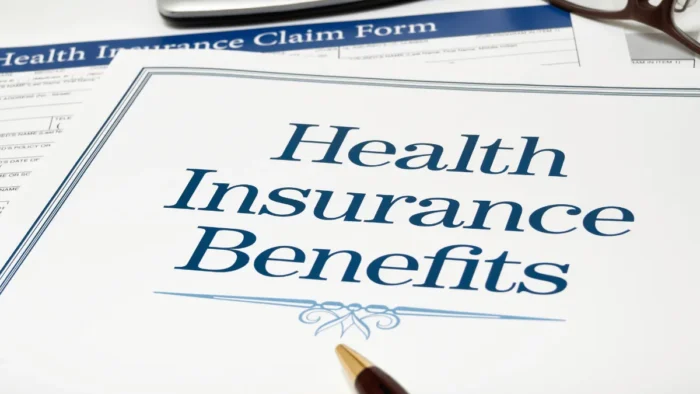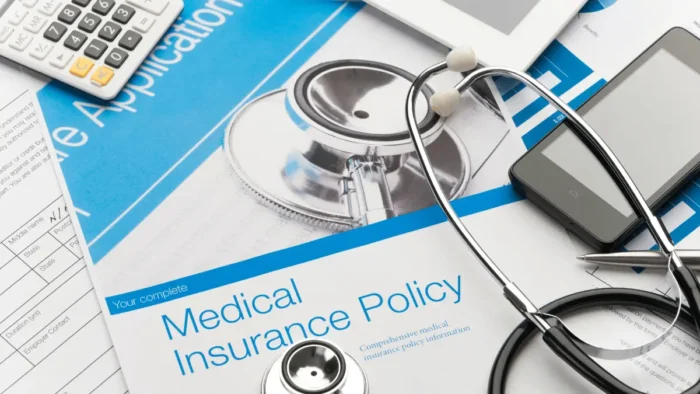Navigating the complexities of health insurance can be daunting for anyone, but it can prove incredibly intimidating for the self-employed. With a traditional employer providing coverage, you’re on your own to understand and choose an appropriate plan – and finding one that meets all your needs can be challenging. With so much information out there, it can feel like an overwhelming undertaking just to get started.
That’s why we put together this comprehensive guide to understanding health insurance for self-employed individuals: to remove some of that mystery and uncertainty while giving you the knowledge necessary to make a well-informed decision about your affordable care act (ACA) options.
1. Understand Your Health Insurance Options
Health insurance can be confusing, but it’s crucial to understand the different types of plans available to you. Researching and comparing these plans can help you decide what will work best for you and your family. While it might seem overwhelming initially, educating yourself can save money and ensure you get the coverage you need.
Whether you’re looking for a plan with a high deductible or a low monthly premium, there’s a wide variety of options. There is affordable health insurance for the self-employed in Texas that offers comprehensive coverage, such as a PPO or HMO plan. You can decide what is best for your needs and budget by exploring your choices.
2. Know What Matters Most to You
When shopping for coverage, knowing what matters most to you is essential. Everyone’s needs are different, so taking the time to determine your specific needs and budget can save you both time and money in the long run. Are you seeking coverage that will protect you in a significant medical emergency, or do you need something more comprehensive to cover routine checkups and prescription medications?
Knowing the answer to this question will help you choose the proper coverage. Additionally, look at your budget to determine how much you can comfortably afford to spend on monthly coverage. With a bit of research and careful planning, you’ll find the right coverage that meets your needs and your budget.
3. Consider a High Deductible Plan
As healthcare costs continue to rise, it may be worth considering a high deductible plan. While these plans have lower monthly premiums, they also come with a higher deductible – the amount you must pay out of pocket before your insurance kicks in.
Suppose you’re generally healthy and don’t have a lot of medical expenses. A high-deductible plan could save you money in the long run. It’s important to talk to your insurer about your options and determine if a high-deductible plan is right for you. With careful consideration, you could find a plan that saves you money and provides the coverage you need.

4. Take Advantage of Tax Deductions
If you’re self-employed, you know that every penny counts. Did you know you can save money on taxes by taking advantage of self-employed health insurance deductions? By deducting the cost of your health insurance premiums from your taxable income, you can lower your overall tax bill and keep more money in your pocket.
With so many financial pressures the self-employed face, it’s easy to overlook these tax breaks. But by researching and learning about these deductions, you can enjoy more financial flexibility and security as a self-employed business owner. So, take advantage of this cost-saving opportunity – look into self-employed health insurance deductions and start reaping the benefits today.
5. Be Proactive About Choosing a Plan
Shopping around could be the difference between getting a plan that caters to your needs and paying for something that only offers a little value. Take the time to research the various providers and the different plans that they offer. Find out what is covered, excluded, and any deductibles you must pay. The internet has made comparing prices and coverage options from different providers more accessible. Take your time making a decision.
6. Plan for Emergencies in Advance
Emergencies are unpredictable and can put a financial strain on anyone. That’s why it’s essential to plan for the unexpected. One way to do this is by enrolling in an emergency fund or setting up an emergency savings account for healthcare costs. By doing so, not only are you preparing for the worst, but you’re also saving money in the long run.
Unforeseen medical expenses can quickly add up, causing a significant dent in your wallet if you need to prepare. By investing in an emergency fund, you can rest easy knowing that you have a safety net in an emergency. Don’t wait until it’s too late; start planning today and safeguard your financial future.
Having the right health insurance is essential for anyone, primarily self-employed individuals. With so many options and factors to consider, it can take time to make an informed decision. But by understanding your coverage needs, researching various plans, and taking advantage of tax deductions, you’ll find a plan that fits your budget and lifestyle. Don’t wait – take control of your healthcare today and start finding the right plan.





